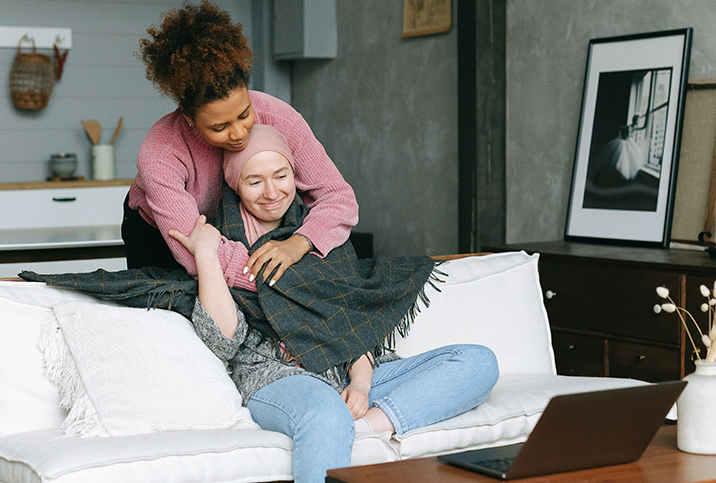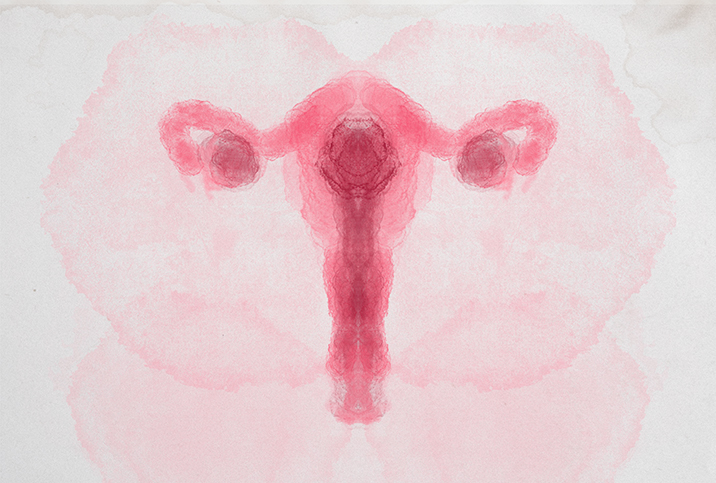Supporting a Partner With Ovarian Cancer

A diagnosis of cancer is one of the most emotionally traumatic experiences a person can undergo. It's terrifying, confusing and can leave them feeling more alone than ever. This is where their partner comes in.
A person who has been diagnosed with ovarian cancer is likely to be emotionally floored by the news, not to mention the inherent difficulty in coping with emotions while trying to process new information about prognosis and treatment.
Your help is going to be critical for your partner to make it through this challenging time. As every individual is different, every couple has a unique dynamic. However, there are a few tried-and-true ways you can be a great source of support for her.
Educate yourself on ovarian cancer
One of the first assignments is to learn about the disease afflicting your loved one.
This learning portion of your support program can and should include plenty of reading online, with a focus on what the two of you can expect at her stage and what strain of ovarian cancer she has. A prime starting point is this brief explainer from the American Cancer Society.
You should also research the treatment protocols she's currently on and potential future treatments. Some crucial areas include learning about symptoms or side effects of medications that could precipitate a call to her doctor, and what might prompt a swift trip to the ER. Look into any at-home treatments for easing her symptoms.
Beyond searching the web for info, ask your partner how she would feel about you accompanying her to her appointments. Many people undergoing cancer treatment appreciate having company along on doctor visits. You can do so as more than moral support by helping remember questions intended for her healthcare provider and by taking notes on what gets discussed.
This way, you can help ease her logistical, practical burden and give her more space to process the emotional weight of her new reality.
Communicate with one another
While it's clear you'll need to make yourself available and open to communication from her as she copes with her diagnosis and treatment, it's vital you remember to make communication a two-way street.
It's counterintuitive, but many couples speak about a cancer diagnosis as taking them to new heights of connection and intimacy. Cancer is, of course, a terrible disease, but perhaps the silver lining is you can each take the opportunity to make yourselves more emotionally available to the other.
Give her the space to share her fears and worries, but remember you're in this together. As her partner, you're bound to figure largely among her fears and concerns. Make sure you're sharing your own feelings and opening yourself up for her too.
Talk about sex
Some types of ovarian cancer and subsequent treatment can cause issues like vaginal dryness and painful intercourse. That's frustrating enough for her, but if you also consider the intimate nature of her cancer and the possibility of surgical scarring post-treatment, it's not unreasonable sex might be difficult for her psychologically as well.
Make sure the two of you discuss these potentialities, as well as talking about other ways you can be intimate with one another without vaginal penetration. If sex is something you both want but are struggling to make happen, make an appointment with a sex therapist for guidance and support.
Accept other help
Remember, you're not her sole source of support. Be accepting of her need to spend time with other friends and family separately from you, and allow her the space to be apart from you without resentment or feeling like your help is inadequate. Keeping her connected to her favorite activities and friends is a huge boost for her psychological well-being and her recovery.
Additionally, it's OK if you also need support. Caregiver burnout is a real thing and many caregivers find that they need some help as well. Look into local support groups (in-person or online) that can offer you insight and comfort.
Conclusions
Helping a loved one through a cancer diagnosis and treatment regimen is one of the biggest challenges any of us can face.
However, with a loving, empathetic attitude and, above all, open communication between the two of you, your relationship can emerge in a new, more intimate form, making you closer than ever.


















